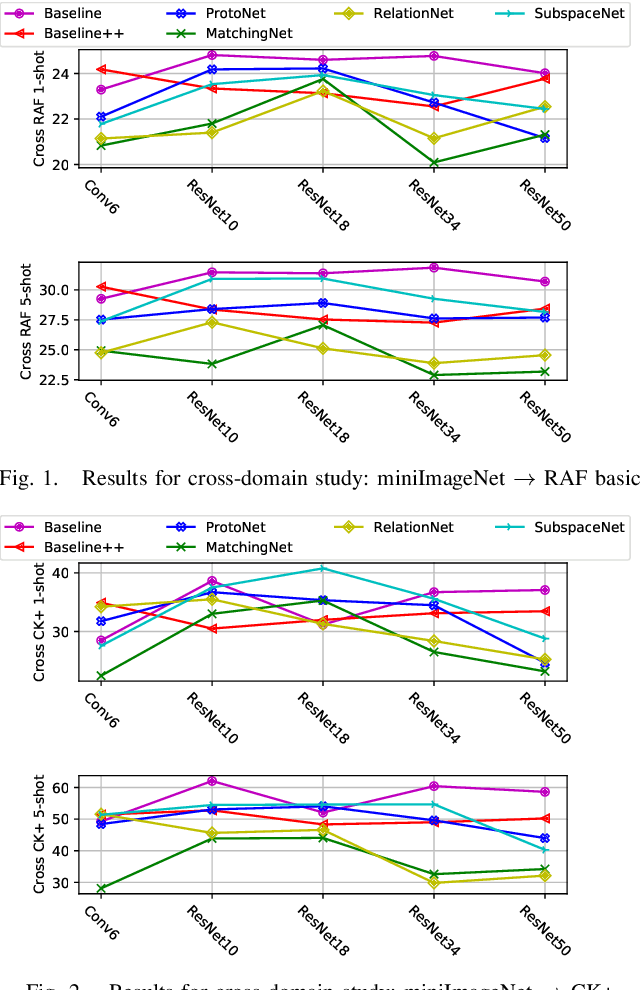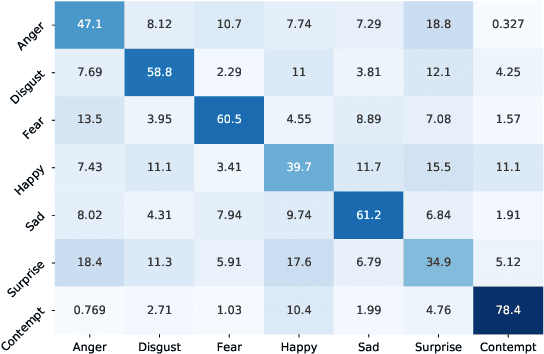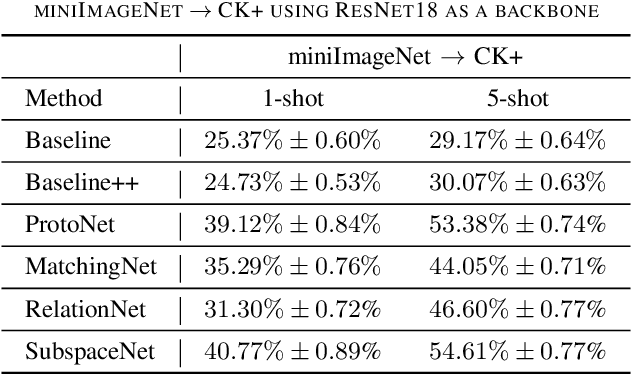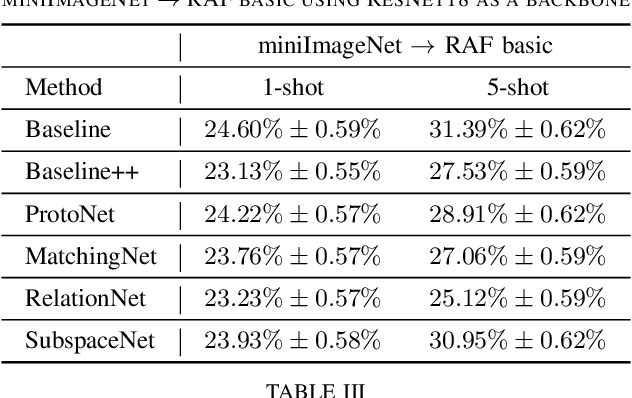Anca-Nicoleta Ciubotaru
Revisiting Few-Shot Learning for Facial Expression Recognition
Dec 11, 2019



Abstract:Most of the existing deep neural nets on automatic facial expression recognition focus on a set of predefined emotion classes, where the amount of training data has the biggest impact on performance. However, in the standard setting over-parameterised neural networks are not amenable for learning from few samples as they can quickly over-fit. In addition, these approaches do not have such a strong generalisation ability to identify a new category, where the data of each category is too limited and significant variations exist in the expression within the same semantic category. We embrace these challenges and formulate the problem as a low-shot learning, where once the base classifier is deployed, it must rapidly adapt to recognise novel classes using a few samples. In this paper, we revisit and compare existing few-shot learning methods for the low-shot facial expression recognition in terms of their generalisation ability via episode-training. In particular, we extend our analysis on the cross-domain generalisation, where training and test tasks are not drawn from the same distribution. We demonstrate the efficacy of low-shot learning methods through extensive experiments.
 Add to Chrome
Add to Chrome Add to Firefox
Add to Firefox Add to Edge
Add to Edge